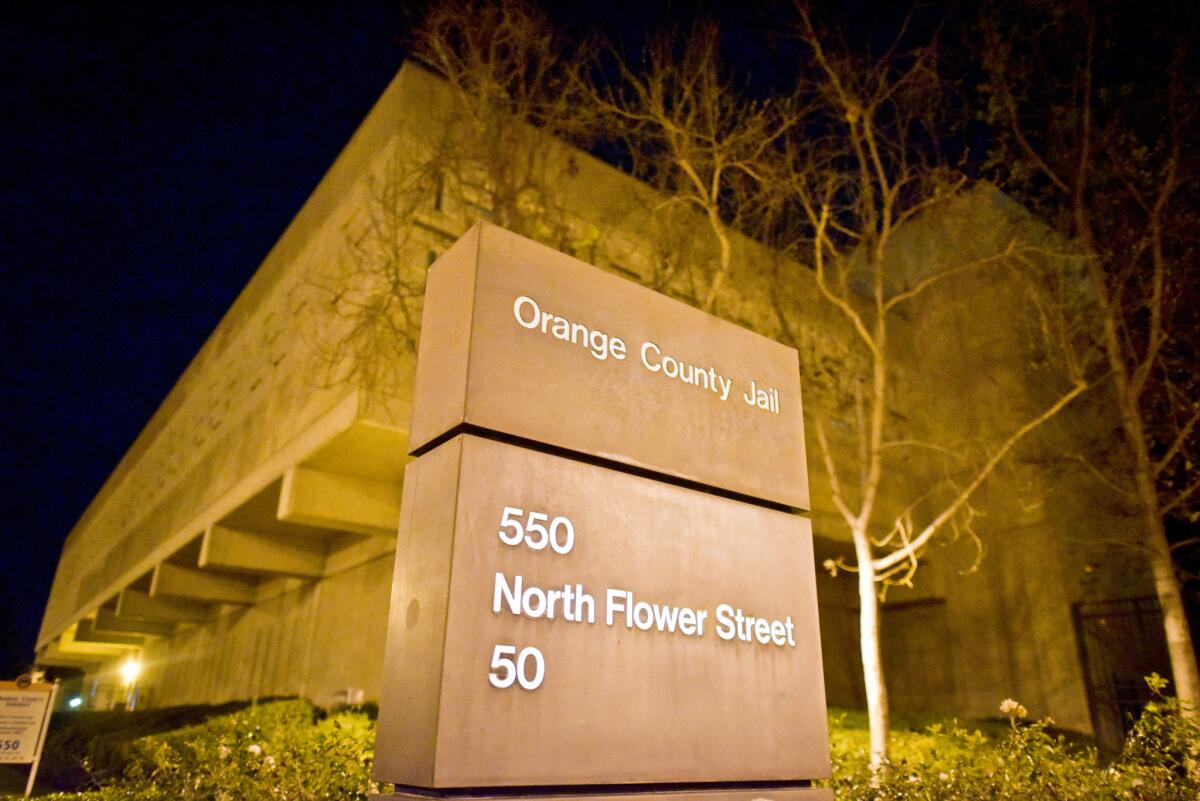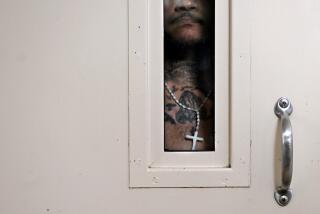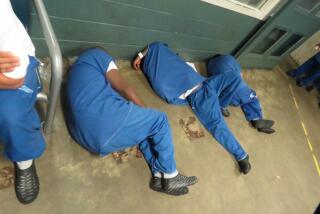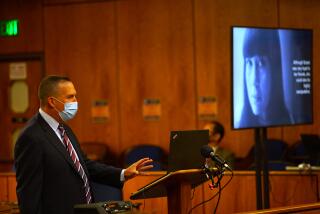Judge orders safety measures in O.C. jails, but denies inmate releases over coronavirus threat

- Share via
A federal judge ruled that Orange County’s sheriff acted with deliberate indifference toward the safety of inmates and ordered new social distancing requirements in the jails to combat spread of the coronavirus.
But the decision by U.S. District Judge Jesus G. Bernal on Tuesday denied a request by the American Civil Liberties Union of Southern California to release 468 medical vulnerable inmates at risk of contracting COVID-19, the disease caused by the virus.
Sheriff Don Barnes said his department would appeal the court order.
“While I appreciate that the court did not grant the ACLU’s request to release inmates into our community, I am disappointed that the court has ordered us to implement measures which are not mandated by law or regulation,” Barnes said. “I have taken seriously the threat of COVID-19 in our jails. The department has implemented CDC guidelines in our facilities, and in many instances have done more than their recommendations, long before this lawsuit was filed.”
Jacob Reisberg, a jail conditions advocate with the ACLU, said although its request to release vulnerable inmates was not granted, the organization was pleased with Bernal’s ruling that inmates were not being adequately protected.
The ACLU had challenged the conditions of inmate confinement as violating the Constitution’s guarantees of due process and protection against cruel and unusual punishment.
“A review of the evidence submitted suggests that although defendants may have a policy to comply with the [Centers for Disease Control and Prevention] guidelines, actual compliance has been piecemeal and inadequate,” the judge found.
He noted that the sheriff claimed to “give inmates soap and other personal hygiene supplies, but inmates report that they have not been given enough soap to frequently wash or clean their living spaces.”
Similarly, the sheriff claimed to “quarantine new arrivals and those with a known exposure, but inmates declare that defendants allow quarantined individuals to use the same common spaces as the general population.”
Bernal noted that the number of infected inmates had risen to 369 from only 26 confirmed cases on April 22.
“Assuming a current Jail population of 2,826, the rate of COVID‐19 infection at the Jail is 12.4%. That number is astronomical compared to the rate of infection in the Orange County general population, which is about 0.14%,” the judge wrote.
“Plaintiffs have established a likelihood of irreparable harm.... Without additional measures to abate the spread, more inmates will contract the disease. Undoubtedly some will die. Certainly, there is no greater irreparable harm than death,” the judge wrote.
But the ACLU, he wrote, failed to “meet their burden to prove that the balance of equities tilts in favor of releasing all medically vulnerable and disabled inmates.”
Some inmates could prove a flight risk and pose a threat to public safety, he said, noting that “many of the individuals in the proposed class have committed or are charged with violent crimes.”
Bernal instead imposed a detailed set of requirements including “adequate spacing of six feet or more between incarcerated people so that social distancing can be accomplished in accordance with CDC guidelines.”
He required that inmates receive, free of charge, an individual supply of hand soap and paper towels sufficient to allow frequent hand washing and drying each day and an adequate supply of clean implements for cleaning such as sponges, brushes and disinfectant hand wipes or other products effective against the virus.
In addition, each inmate must now have access to hand sanitizer containing at least 60% alcohol as well as daily showers and access to clean laundry.
He also mandated that all Jail staff wear personal protective equipment, including CDC‐recommended surgical masks, when interacting with inmates.
The department is also required to take the temperature of inmates, jail staff and visitors daily and test anyone displaying symptoms of COVID-19.
Barnes has repeatedly rebuffed suggestions that he is not doing enough to protect inmates and opposes further releases, telling the county Board of Supervisors that he has reduced the jail population by about 45% since Gov. Gavin Newsom in March issued the state’s stay-at-home-order and social distancing policy.
The sheriff said he has “implemented extraordinary measures” to prevent the spread of COVID-19 and preserve jail operations.
“I am not supportive of extensive preemptive releases that go beyond what is necessary to keep the jail and community safe,” Barnes said. “I am confident that the measures we continue to take in the jails meet our obligation to provide for the safety of both inmates and staff.”
More to Read
Sign up for Essential California
The most important California stories and recommendations in your inbox every morning.
You may occasionally receive promotional content from the Los Angeles Times.














